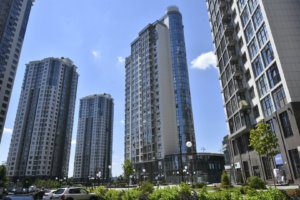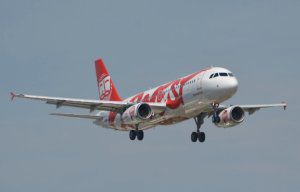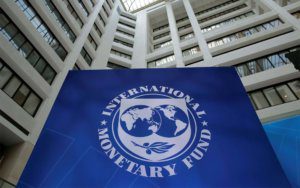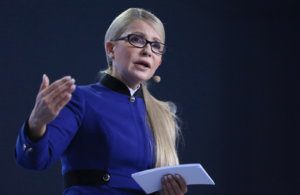
Kyiv City Council on October 18 at second reading passed a decision to set up the rate of a tax on land meant for the construction and maintenance of high-rise buildings at 0.01% of the recognized estimated monetary value of land. The current rate is 1%.
The respective changes are stipulated in Kyiv City Council’s decision on the establishment of local taxes and fees in the city of Kyiv dated June 23, 2011, which was taken as a basis on July 19, 2018.
Leonid Antonenko, a member of the Kyiv Team group of deputies, said that the changes had been introduced to provide reduced rates for multi-apartment building co-owners associations, however, in its current state the adopted norm can be enjoyed by real estate developers as well.
“Real estate developers have been given a gift – a tax on land meant for the construction and maintenance of high-rise buildings that was decreased by a factor of 100! The first decrease from 1% to 0.1% was voted for in July at first reading,” the deputy said in a post on his Facebook page.

Ernest Airlines (Italy) on March 21, 2019 plans to start operating regular flights from Kharkiv International Airport to Rome and Milan, the airport’s press service has reported.
Departure from Kharkiv will be three times a week on Thursdays, Fridays, and Sundays. The price of a one way ticket will start from EUR45, including hand luggage and taxes.
As reported, in September 2018 passenger traffic in Kharkiv airport was 88,900 people, which is 12% more than in the same period of 2017. In 2017 Kharkiv airport increased passenger traffic to 806,100 people (in 2016 the figure was 599,700 people.) In 2018 it is planned to raise it by another 12% (to 900,000 people).
In July 2018, passenger traffic amounted to 104,500 people, which is 20% more than in the same period of 2017 (87,200).
Kharkiv Airport has a runway with a length of 2,500 meters and a width of 50 meters. It has two passenger terminals with a capacity of 100 and 650 people per hour.

The International Monetary Fund (IMF) staff and the Ukrainian authorities have reached agreement on economic policies for a new 14-month Stand-By Arrangement (SBA), which will replace the arrangement under the Extended Fund Facility (EFF), approved in March 2015 and set to expire in March 2020. “The new SBA, with a requested access of SDR 2.8 billion (equivalent to $3.9 billion), will provide an anchor for the authorities’ economic policies during 2019,” the IMF said in a statement on Friday.
According to the statement, the agreement is subject to IMF management approval and approval by the IMF Executive Board. Board consideration is expected later in the year following parliamentary approval of a government budget for 2019 consistent with IMF staff recommendations and an increase in household gas and heating tariffs to reflect market developments while continuing to protect low-income households.
The IMF says that building on progress made under the EFF arrangement in reducing macro-economic vulnerabilities, the new agreement will focus in particular on continuing with fiscal consolidation and reducing inflation, as well as reforms to strengthen tax administration, the financial sector and the energy sector.
“The agreement reached today reflects the IMF’s commitment to continue to help Ukraine achieve stronger, sustainable, and inclusive economic growth,” the IMF said.
The Ukrainian authorities’ steadfast and effective implementation will be critical for the program to achieve its objectives, it added. According to the IMF, the new program has been developed in close coordination with the World Bank and the European Union, who have parallel operations to support Ukraine. As reported, the four-year-EFF program worth SDR 12.348 billion (about $17.46 billion at the current forex rate) was launched in March 2015 with a first disbursement of $5 billion. It originally suggested a quarterly review of the program, the allocation of three more tranches worth SDR 1.18 billion each in 2015 and a reduction in quarterly disbursements in 2016-2018 to SDR 0.44 billion ($0.61 billion).
Under the ongoing program, Ukraine has managed to receive a second tranche worth $1.7 billion early in August 2015 with a little delay, which was followed by a long break as Ukraine had failed to meet a number of conditions, which was aggravated by the political crisis and government reshuffles.
Talks on further financing resumed after the appointment of a new Cabinet of Ministers headed by Volodymyr Groysman in April 2016. However, the IMF decided to issue a third disbursement worth $1 billion only in the middle of September 2016 and a fourth one on April 3, 2017.
Since July 2017 Ukraine has been in a complicated negotiating process with the IMF on the gas issue. The IMF insists on raising the price of gas for the population, which, according to various estimates, may range from 30% to 60% due to rising prices in international markets, while the prime minister had previously pointed out the irrationality of such a sharp increase.
The Fund’s position is quite tough, as the government last year decided to raise gas prices that allowed Ukraine to receive a tranche from the IMF, but subsequently unilaterally refused to implement it. Only on Friday, October 19, the government decided to raise gas prices for the population by 23% from November 1, but their new level is still significantly lower than the prices for industry.

The number of clinical trials of medicines that are conducted in Ukraine could double by 2023, Ivan Vyshnyvetsky, the head of the Ukrainian Association of Clinical Research, has said. During the first congress of the association held in Kyiv, he noted that doubling the number of clinical trials conducted in Ukraine would be a strategic task for the association. “Undue pressure on researchers involved in clinical trials on the part of controlling and law enforcement agencies has recently increased. Obviously, to ensure a greater transparency of the process, it is necessary to improve the regulatory framework regulating clinical trials and eliminate the existing gaps,” the expert said.
He also stressed that the association intends to conduct a systematic educational work in order to dispel “myths and horror stories” about clinical research that circulate in the Ukrainian society. “Clinical trials that determine the efficacy and safety of drugs is a standard international practice aimed at increasing the availability of modern and innovative treatment and is used in all developed countries,” he said.
He told Interfax-Ukraine that currently about 200 clinical trials are being conducted in Ukraine. At the same time, over the past two years the reduction in the number of clinical studies has stopped.

Horizon Capital Group, which manages $800 million, plans to invest up to $200 million in Ukraine over the next three or five years, Denys Tafintsev, a senior partner and a member of the Horizon Capital investment committee, has said at the Kyiv International Economic Forum. “Ukraine has a relatively stable macroeconomic situation and poorly priced assets: six years ago they were three times more expensive,” he described the current situation. Tafintsev noted that large international investors are unlikely to come to Ukraine on the eve and during the presidential and parliamentary elections scheduled for 2019.
“This is a good opportunity for us as a domestic fund,” he said. According to him, among the company’s industry priorities are IT, processing, export sectors, and light industry.
Tafintsev noted that Horizon Capital invests in share capital, avoiding companies with large debts.
He told Interfax-Ukraine that the named volume of investments is planned not only at the expense of the new investment fund Horizon Capital is currently creating, but all the company’s investments.

Leader of the Batkivschyna party Yulia Tymoshenko believes that the draft national budget for 2019 submitted by the authorities is a budget for the destruction of the economy, since it envisages raising tariffs and freezing minimum wages and pensions, which will lead to the total impoverishment of the population and the destruction of the middle class, according to the official website of the party.
“For the first time in the history of Ukraine, wages and pensions are equal to 43% of the subsistence level. This is the budget of total poverty, saving the tariff policy that is crushing for Ukrainian families – they are increasing by 23%. This is a corrupt and destructive budget for the economy,” Tymoshenko told journalists in the parliament.
According to the leader of Batkivschyna, the minimum wages and pensions provided in the estimates in U.S. dollar terms are 1.7 times less than they were at the beginning of 2014, health care financing has been reduced by 1.6 times.
According to Tymoshenko, it is unacceptable that the budget for 2019 is based on the old tax base, with twice the higher rates than in developed countries, which significantly slows down the development of the economy.
The politician noted that if the government draft budget is adopted, “the economy’s falling, emigration of people to other countries, the destruction of the middle class will continue.”
“This budget, in essence, is a verdict to the country. I hope that the deputies will not risk voting for it,” Tymoshenko stated.
BUDGET, PEOPLE, THREATENS, UKRAINIAN ECONOMY, WELL-BEING, YULIA TYMOSHENKO